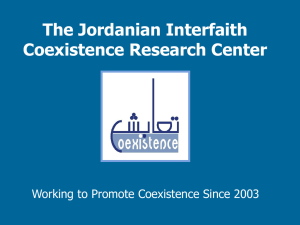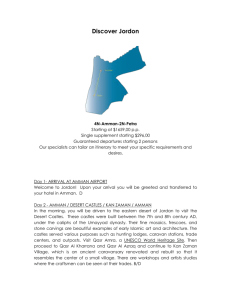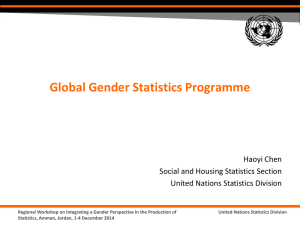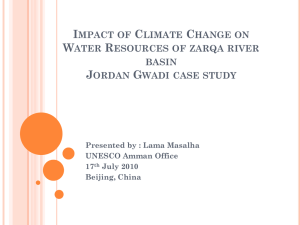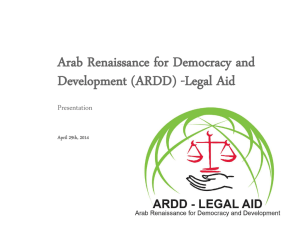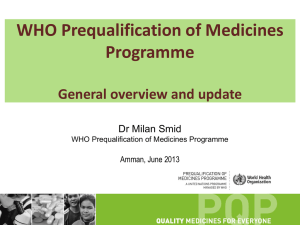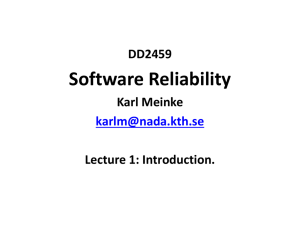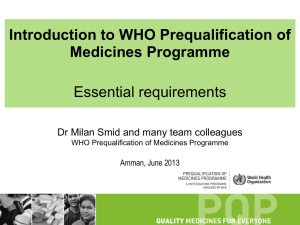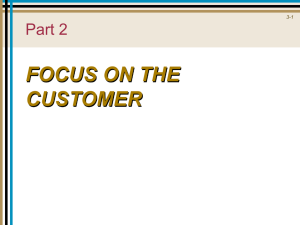no safe change without values
advertisement
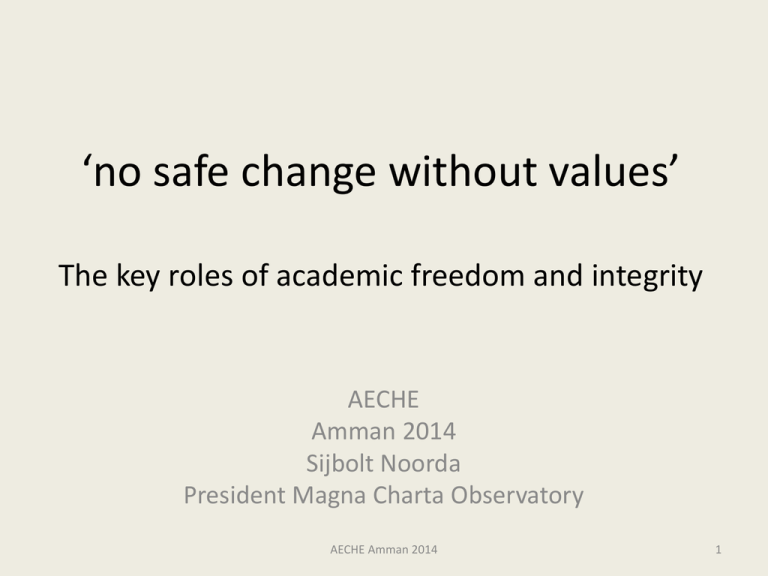
‘no safe change without values’ The key roles of academic freedom and integrity AECHE Amman 2014 Sijbolt Noorda President Magna Charta Observatory AECHE Amman 2014 1 what is magna charta? • The Magna Charta Observatory of Fundamental University Values and Rights is a non-profit organisation based on the Magna Charta declaration of 1988, founded by the University of Bologna and the European University Association (EUA) • From its beginnings it wished to become a worldwide program and project AECHE Amman 2014 2 we are serving and representing a community of signatories • B. INSTITUTIONAL NORMS AND VALUES • 29. Describe the mission and the vision of the University (official, as reflected in the Statute or the Senate minutes) • 30. Describe the institutional policy with respect to academic freedom. What are your institutional standards and guidelines related to academic freedom? • 31. Describe the institutional autonomy of your university vis-à-vis national and founding authorities and the accountability measures that go along with these autonomy types. • 32. Does the implementation of academic freedom and of institutional autonomy meet any difficulties in your university? AECHE Amman 2014 3 subscribing to basic principles ‘ The university is an autonomous institution at the heart of societies differently organised because of geography and historical heritage; it produces, examines, appraises and hands down culture by research and teaching. To meet the needs of the world around it, its research and teaching must be morally and intellectually independent of all political authority and economic power.’ [Magna Charta Universitatum] AECHE Amman 2014 4 come and join the movement! • it’s our ambition to be active and relevant worldwide, in many diverse regions and in various ways • not as a hierarchy or a court of law, but rather as a community of university people • willing to dedicate their knowledge and creativity to finding ways ahead AECHE Amman 2014 5 two cases 1. academic independence and integrity in terms of institutional statutes, strategies and leadership 2. academic independence and integrity in terms of academic skills and competences AECHE Amman 2014 6 case #1 academic independence and integrity in terms of institutional statutes, strategies and leadership foundational qualities – not an elitist privilege meant to enable teaching & learning and research, to serve society – not an excuse for ivory towers or authoritarian leadership styles AECHE Amman 2014 7 it is a program, not a given • for universities these qualities are crucial, so a) they must be granted to them, • Societies (governments; political, religious or ethnic groups; businesses; private owners) should realize that without these qualities universities cannot be and deliver what they should be and deliver AECHE Amman 2014 8 it is a program, not a given • for universities these qualities are crucial, so b) they need good and regular in-house maintenance • independence and integrity should be practiced and protected at all levels • faculty and students should realize freedom is no excuse for ‘everything goes’ AECHE Amman 2014 9 Hosram Badrawi (Bologna 2007) • ‘academic freedom is the intellectual and creative foundation of the university’ • ‘faculty are expected to pursue truth and knowledge and are conferred the right to research, teach and discuss any topic without being subject to university or system discipline or censorship. However, teaching staff – as well as administrators – are expected to prize accuracy, to exercise appropriate self control, to show respect for the opinions of others, and thus ensure the academic freedom of students and their rights of access to the university’ AECHE Amman 2014 10 responsibilities • ‘a college or a university is simply an institution of higher learning’ (‘not a business or an industry, not a political party or a social service, not a religion nor a mosque’) • this implies a clear set of responsibilities, partly to the positive, partly to the negative (go for fair analysis and unbiased inquiry, avoid conflicts of interest and personal gain) • these cannot be maintained solely on a private moral base, but must have an institutional base AECHE Amman 2014 11 case # 2 academic independence and integrity in terms of academic skills and competences these qualities or values are crucial in teaching and learning, a) because admission officers, teaching staff and examiners should treat students fairly, and b) because of the educational value of these qualities: students should learn and acquire them AECHE Amman 2014 12 the value of academic skills • in many societies there are signs that graduates often lack the desired academic qualities of graduates • as a consequence of a narrowing reductionist approach of HE? • or as a corollary of mass enrolment in HE? • or of new demands from society? AECHE Amman 2014 13 sustainable competences • we should seriously be asking whether the competences of our graduates will be sustainable during their careers • and be in line with the needs of our (future) societies AECHE Amman 2014 14 what is going on in society that (re)defines demand? • growing complexities & social dynamics • trust crisis & quest for integrity, transparency, openness and accountability • grand challenges requiring new ways of multidisciplinary thinking • globalization, culture blending & parochialism • increasing competition & volatility • et cetera AECHE Amman 2014 15 what is going on in society that (re)defines demand? • such trends are not only relevant to women and men in a relatively limited number of leadership positions • they affect many professions and responsibilities at various levels • and therefore should (re-)define ambitions and goals in higher education AECHE Amman 2014 16 the academic version of 21st century skills • academic skills, in terms of powers of thinking and argumentation, intellectual independence & drive to inquire • scientific integrity, in terms of working with evidence, sources, methods & colleagues • professional ethics, as part of socialization & the ability to handle risks and complexities • civic qualities, in terms of public interest & world citizenship AECHE Amman 2014 17 Magna Charta Universitatum • in 1988 hundreds of European universities signed the Magna Charta • since then many more have done so • convinced of the value of autonomy, academic values and integrity for academia • more than a conviction, a signature and a statement is needed: maintenance and regular updating AECHE Amman 2014 18 Magna Charta Universitatum • universities worldwide (should) engage in critical self-analysis and strategic value development • the long time sustainability of academia is at stake • in our Magna Charta community we discuss these issues and share good practices in regional and international meetings • like this September in Uppsala, Sweden AECHE Amman 2014 19 Magna Charta Universitatum • I warmly invite you to join this meeting • and hope to see many of you this September in Uppsala, Sweden • and find out that it makes sense to become part of our community • http://www.uu.se/en/magnacharta AECHE Amman 2014 20 AECHE Amman 2014 21
